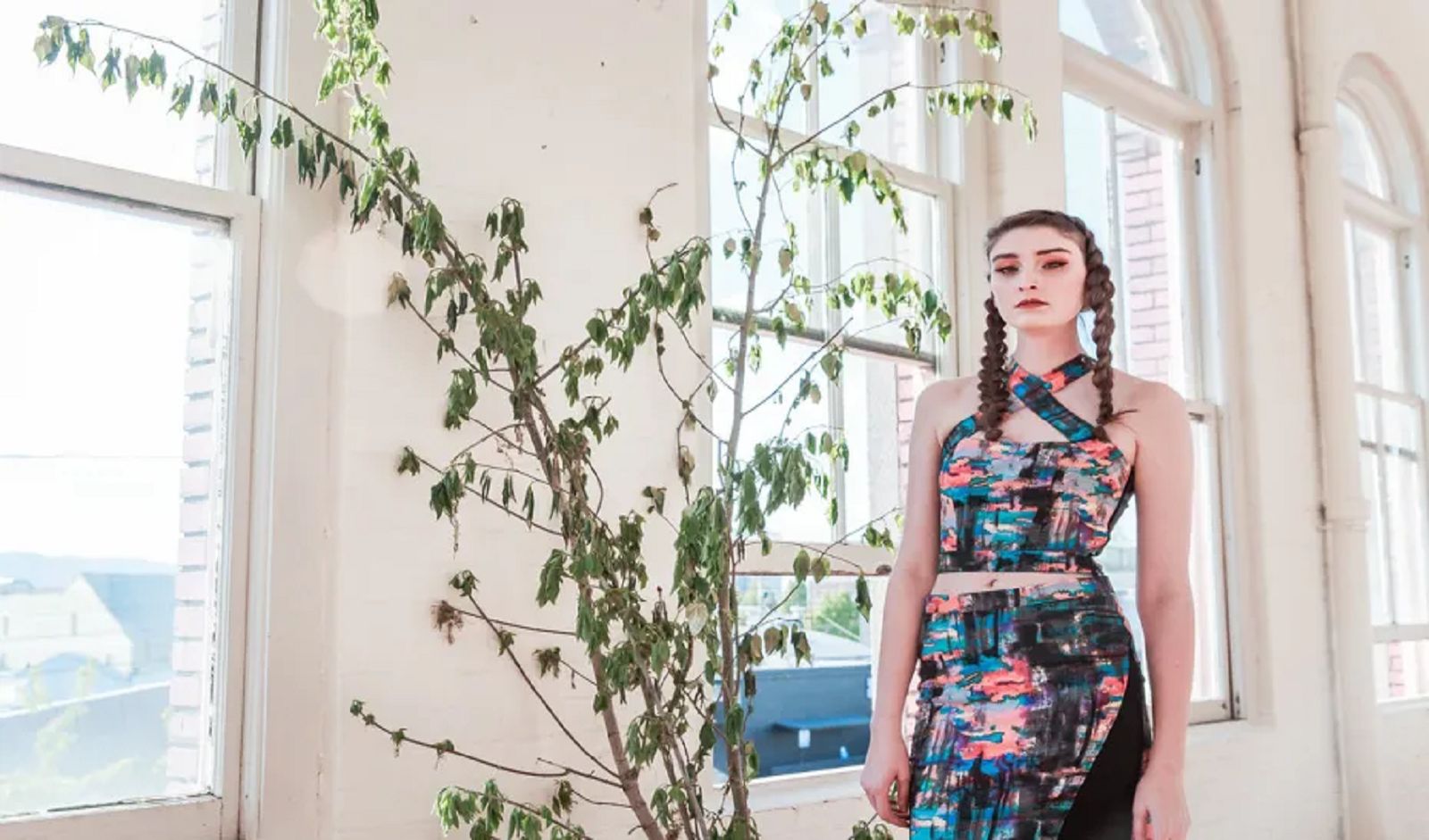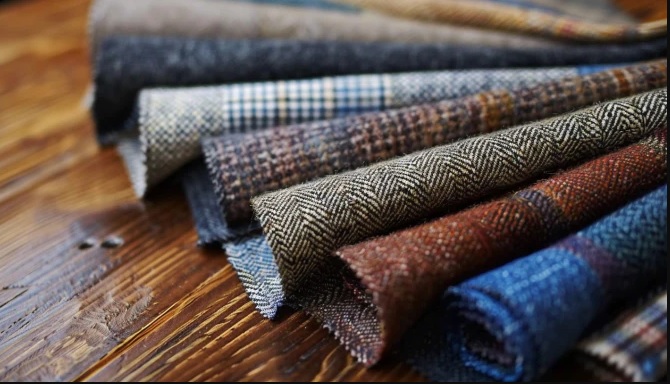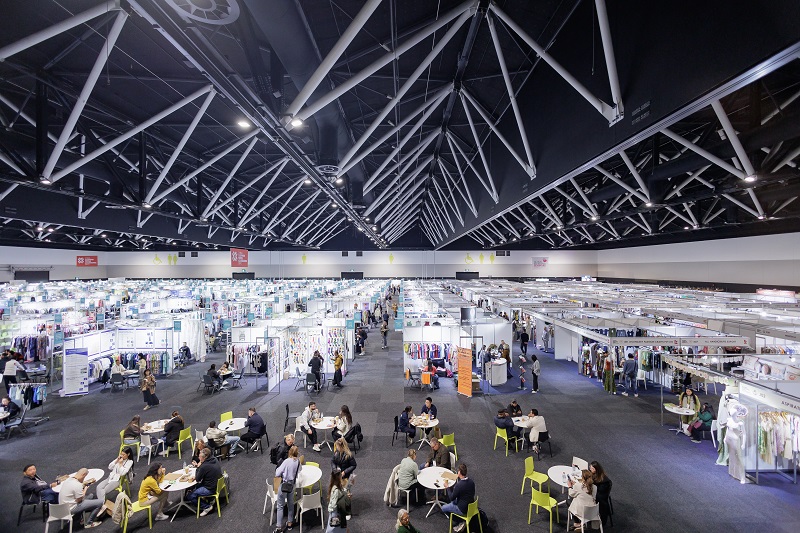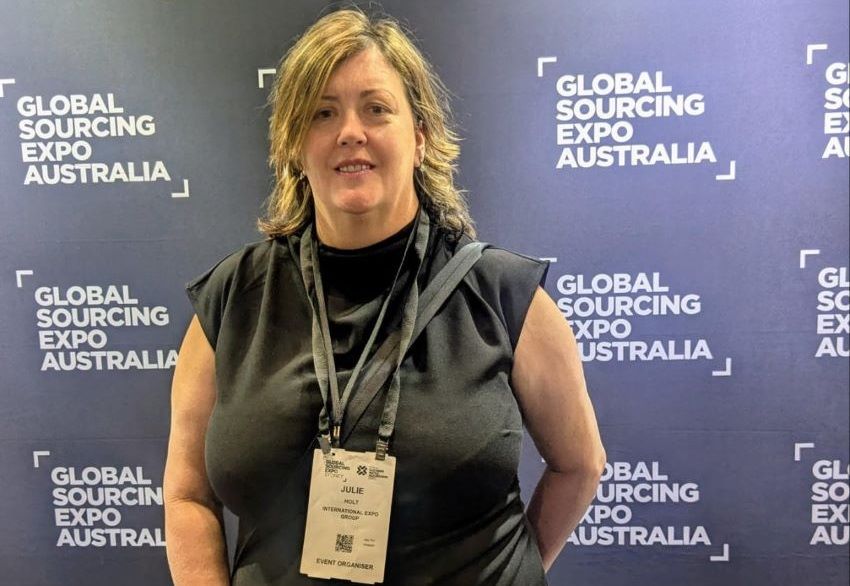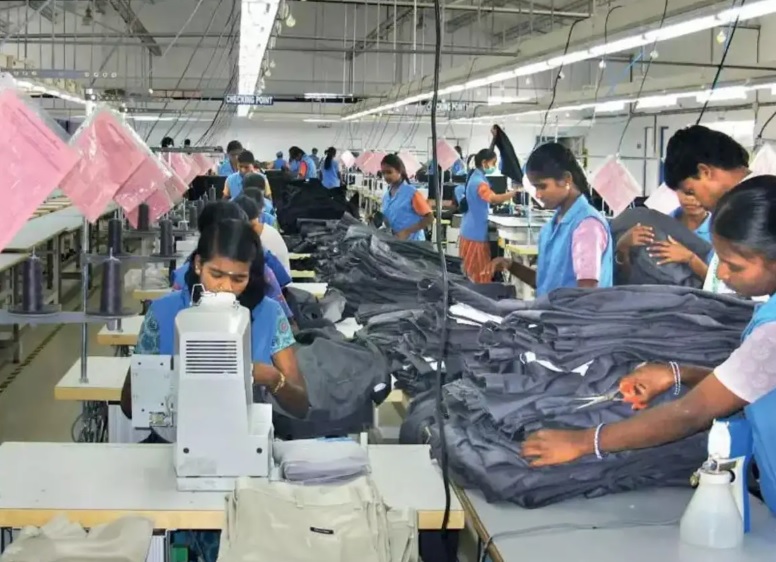FW
Removing foreign parts from cotton is a major challenge, but Trutzschler’s T-SCAN technology is revolutionizing contamination control in rotor applications. Already proven in cotton ring lines, T-SCAN is now helping Indian spinners enhance yarn quality with its advanced detection and ejection system.
Cotton bales often contain unwanted materials like plastic, jute, metal, and colored contaminants, which can lead to yarn rejection. Polypropylene, in particular, poses a significant issue as it affects dye absorption and weakens fabric integrity. While ring spinning relies on yarn clearers to address this, rotor spinning faces limitations in polypropylene detection.
Enter T-SCAN. Its latest models, TS-T3 and TS-T5, effectively eliminate contaminants with specialized sensor modules. These systems remove various polypropylene types, including transparent and glossy variants, making them ideal for rotor and recycling applications.
Trutzschler customers in India are witnessing remarkable improvements. Ahmedabad-based Nandam Terry and Nandam Denim report significantly reduced color contamination with minimal cotton loss. “Fabric appearance has improved, and we now supply contamination-controlled yarn to premium brands,” says Ashish Raval, Vice President Spinning.
Thiagarajar Mills Ltd. in Madurai, a major denim yarn producer, has also adopted TS-T5 for rotor spinning. “Our contamination levels have dropped drastically, and maintenance is easy,” notes Senior VP Muthupalaniappa M.
Blue Rose Cotspin LLP, producing 20 tons of yarn daily, praises the TS-T3 for eliminating contamination complaints. Meanwhile, Punjab-based Patiala Gold LLP highlights its high efficiency and minimal downtime.
With up to 80 per cent less compressed air usage, T-SCAN ensures maximum separation with minimal fiber loss. Its low-maintenance, energy-efficient design makes it a game-changer for spinners striving for premium-quality yarn.
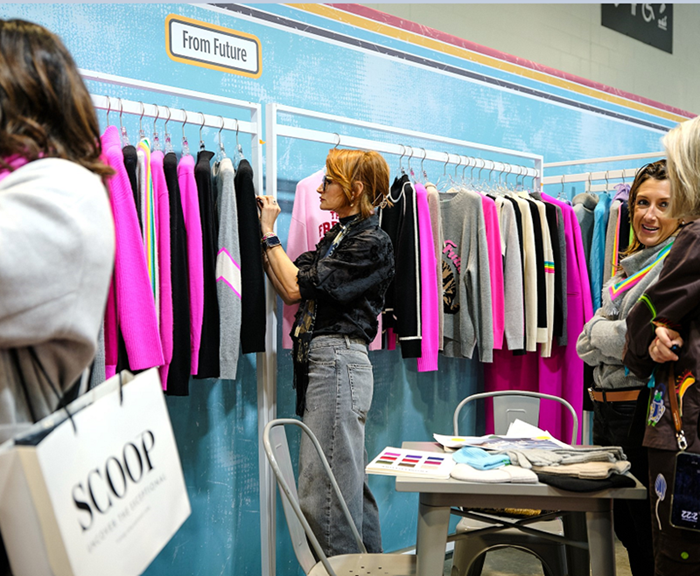
Scoop closed its doors at Olympia West, marking the successful conclusion of its Autumn/Winter 2025 edition. Over three action-packed days, the event brought together a vibrant mix of designers, buyers, and industry leaders, creating a dynamic space for business and creativity. The show attracted top retailers, from premium independent boutiques to major department stores, all exploring the latest trends and fresh collections.
Retailers and buyers engage with new collections
Scoop welcomed an impressive lineup of buyers, including The Place London, The Hambledon, Cordelia James, The Mercantile, Jules B, and Sass and Edge. Department store buyers from Galeries Lafayette, Le Bon Marché, John Lewis, Hoopers, Anthropologie, and Morleys also attended, scouting for standout collections. Additionally, Irish retailers such as Emporio, Nu Chic, Sorrento, Macbees, and Sybil explored emerging brands for the coming season. Attendees praised the event’s accessible layout, welcoming atmosphere, and carefully curated selection of brands.
Showcasing established and emerging talent
The event featured an exciting mix of designers, blending well-known names with fresh talent. Highlights included collections from Alohas, Gas Bijoux, Emily Lovelock, Fabienne Chapot, Nobody’s Child, Oats & Rice, Zapa, Augusta, and Bloom. Buyers noted the strength of Spanish brands, particularly Black to Grey, Bloom, and Indi & Cold. Many retailers emphasized the show’s ability to bring new and exciting labels to the forefront, enhancing their buying experience.
Exhibitors praise the show’s energy
Exhibitors were equally enthusiastic, describing the event as upbeat and highly productive. Ian Campbell Smith of Palladio London noted the strong buyer turnout and the diverse brand selection. Hester Moore of Helen Moore called it their best show in five years, highlighting consistent buyer engagement. Juls Dawson of Just Consultancies described the event as a top-tier trade show, emphasizing how busy their stands were and the high-quality interactions with UK boutiques.
Karen Radley, Founder and Managing Director of Scoop, celebrated the show’s success, noting the strong order placements and the industry’s positive outlook. “There’s a real sense of confidence in the market, and it’s fantastic to see buyers investing in fresh, innovative collections,” she said. With excitement already building for the next edition in July, Scoop continues to be a key platform for brands and retailers shaping the future of fashion.
Monforts and its long-time partner, Bengal Technology and Engineering, have successfully installed over 100 fully integrated textile finishing lines in Bangladesh over the past 30 years. At the upcoming Dhaka International Textile & Garment Machinery Exhibition (DTG) from February 20-23, Monforts specialists will highlight the company’s latest innovations in sustainable fabric finishing.
DTG, hosted at the International Convention City Bashundhara (ICCB), will feature over 1,000 global textile machinery brands from 31 countries. The event comes as Bangladesh’s textiles and apparel sector continues its rapid expansion, with over 6,000 factories now contributing to its status as the world’s second-largest exporter of readymade garments (RMGs). The government aims to boost RMG exports to $50 billion this year and $100 billion by 2030, making sustainable and efficient textile processing critical.
Monforts Head of Denim Hans Wroblowski emphasized the company’s commitment to reducing the CO₂ footprint of textile production. “Finishing is an energy-intensive process, and we have developed multiple solutions to optimize efficiency,” he said. Monforts Montex stenters widely used in denim and home textiles, offer high production throughput while ensuring significant energy savings.
Monforts latest innovations focus on energy efficiency, including the VarioMatex Padder for effective water removal, reducing drying costs, and the EcoApplicator, which uses kiss-roll technology for precise finishing in sportswear. The Universal Energy Tower improves heat recovery, cutting energy use by up to 25 per cent, while the ECO Booster System, integrated into Montex stenters, delivers up to 35 per cent energy savings.
These technologies can be retrofitted to existing lines, allowing manufacturers to upgrade without major investments. “With energy costs accounting for up to 70 per cent of production expenses, demand for energy-saving solutions is at an all-time high,” Wroblowski noted.
Monforts Thermex hotflue dyeing systems are widely used in Bangladesh, with over 900 installations worldwide. The Econtrol process, featured in 150 Thermex systems, enables rapid reactive dyeing in just two to three minutes, improving efficiency and sustainability.
Meanwhile, the MontexCoat coating unit is gaining traction in Bangladesh, with the first system installed at DBL Group. It offers versatile coating solutions, from full PVC coatings to minimal penetration treatments. Additionally, the coaTTex unit specializes in single-sided air knife and knife-over-roller coatings, making it a valuable addition for textile manufacturers.
“With strong interest in MontexCoat and coaTTex, we look forward to engaging with industry leaders at DTG,” Wroblowski added. “Bengal Technology and Engineering has been an excellent partner in Bangladesh, and together, we are ready to support the industry’s sustainable growth.”
Twenty-seven Bangladeshi apparel manufacturers participated in this year's Texworld Apparel Sourcing Paris, held at the Le Bourget Exhibition Centre. Held from February 10-12, 2025, this three-day fair provided a platform for these companies to connect with global fashion brands and secure orders for upcoming seasons.
Among the prominent companies who participated in the fair included Aaron Denim, Hoorain HTF, NZ Denim, Sara Fashionwear, and Nexgen Apparel. Other leading garment makers, including Asia Link Design, Flash Apparels, Pacific Sports, and Quality Apparels, were also present, with support from the Export Promotion Bureau (EPB).
Bangladeshi exhibitors showcased high-quality garments blending traditional craftsmanship with contemporary designs at the exhibition. As Bangladesh's garment industry gains increasing global recognition, its innovative designers and premium textiles are attracting the attention of international buyers, solidifying the country's growing influence in the fashion world.
This edition of Texworld Apparel Sourcing Paris featured over 1,259 exhibitors from 25 countries. The event highlighted the latest trends and innovations in the apparel industry, drawing buyers from across the globe. Key players from major sourcing destinations, including China, Turkey, India, and Pakistan, also participated in the event.
Pakistan’s textile and apparel (T&A) exports increased by 10.44 per cent to $6.146 billion during the first four months of fiscal year 2024-25, spanning July-October 2024. As per a report by All-Pakistan Textile Mills Association (APTMA), this achievement highlights the sector’s resilience, adaptability, and competitiveness in the face of global economic challenges.
Several key segments contributed to this surge in exports, demonstrating the sector’s strong performance. The country’s knitwear exports increased by 18.69 per centY-o-Y to $1.76 billion.
Exports of non-knit readymade garments grew by 25.40 per cent to $1.36 billion. Bedwear exports rose by 13.17 per cent to $1.07 billion while cotton fabric exports increased by 5.25 per cent, to $679.43 million. These gains reflect the industry’s ability to adapt to shifting global demand while consistently delivering high-quality products.
Despite the export surge, import trends present a mixed picture, revealing both challenges and opportunities for the sector. Imports of synthetic fibers declined by 23.07 per cent Y-o-Y to $138.82 million. This drop indicates a shift toward either greater domestic production or reduced reliance on synthetic materials due to changing market preferences and production techniques. Industry insiders suggest that the decline may also reflect a strategic focus on optimizing costs by sourcing alternatives locally.
The mixed nature of import trends underscores the importance of strategic investment. While reduced synthetic fiber imports could indicate progress toward self-sufficiency, the rise in machinery imports reflects forward-looking efforts to modernize and remain competitive.
Experts believe that sustained growth in exports will depend on the industry’s ability to balance cost-effective production with ongoing technological advancement. APTMA remains committed to fostering growth and sustaining this positive export trajectory.
The association is working closely with industry stakeholders to promote innovation, improve quality standards, and expand into new markets. The recent rise in exports reflects the success of these efforts, but APTMA’s leadership acknowledges that sustained investment in infrastructure and modernization will be critical in maintaining momentum.
Reju, a materials regeneration company specializing in polyester textile and PET waste recycling, has joined the International Textile Manufacturers Federation (ITMF) as a corporate member. A subsidiary of Technip Energies, Reju focuses on innovative solutions to establish a circular ecosystem for textile recycling, aiming to reduce plastic waste in the industry.
Christian Schindler, Director General of ITMF, welcomed Reju’s membership, emphasizing its role in strengthening the federation’s position as a platform for the entire textile value chain. He highlighted the growing pressure from legislators, brands, and consumers for the industry to embrace circularity.
“Including companies like Reju, which are at the forefront of recycling and circularity solutions, is crucial. The industry must collaborate to scale and accelerate recycling efforts,” he said. Schindler noted that ITMF provides a global network spanning all segments, from fiber production to garment and home textile manufacturing.
Patrik Frisk, CEO of Reju, expressed enthusiasm about joining ITMF, stating, “We look forward to working together to develop solutions with and for the textile industry.”
As the demand for sustainable practices intensifies, Reju’s entry into ITMF aligns with industry-wide efforts to drive large-scale recycling innovations and circular solutions. The partnership is expected to foster collaboration across the global textile supply chain to advance sustainability goals.
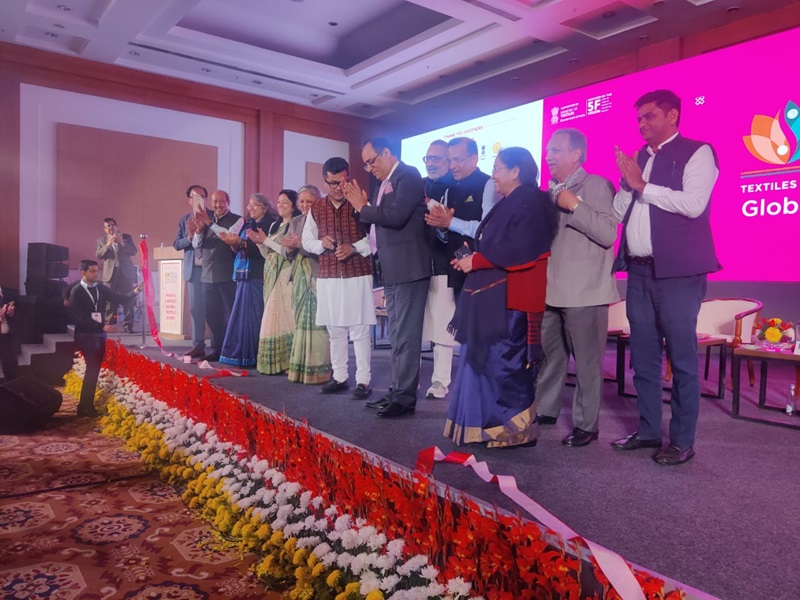
Bharat Tex 2025, a landmark textile event, has officially commenced at the India Expo Mart in Greater Noida, signalling India's ambition to solidify its position as a global textile powerhouse. Inaugurated by Giriraj Singh, Union Minister for Textiles, the event has attracted significant international attention, with participation from over 110 countries.
Minister Singh's address emphasized the pivotal role of Prime Minister Narendra Modi's leadership and vision in making Bharat Tex a reality. He underscored the government's commitment to the sector, citing initiatives like sewing machine distribution and infrastructure investments. "Without taking the name of Narendra Modi, this discourse cannot be completed," Singh stated, acknowledging the Prime Minister's influence. He also expressed confidence in achieving ambitious export targets, aiming to increase textile exports from the current $40 billion to $100 billion, and overall market value to $350 billion. "We have to take this market to 350 billion dollars," he asserted.
Bharat Tex 2025 serves as a comprehensive showcase of the entire textile ecosystem, from raw materials to finished products. This year's event has a strong focus on sustainability, with exhibitors highlighting innovations in organic fabrics, recycled materials, and energy-efficient technologies. The event caters to a wide range of stakeholders, including global buyers, industry leaders, manufacturers, exporters, handicraft artisans, and technology providers. Minister Singh noted the impressive international presence, stating, "This time we have received 6,000 international buyers visiting here to see, what is happening here?" This indicates a surge in global interest in Indian textiles.
The event is not just an exhibition; it's a confluence of several key initiatives. Concurrent events, including the India Sourcing Conclave, the Garment Technology Expo (GTE) 2025, and the debut of DyeChem World, further enrich the experience. The India Sourcing Conclave, organized by the Buying Agents Association, focuses on boosting India's merchandise exports with a particular emphasis on ESG (Environmental, Social, and Governance) considerations. GTE 2025 showcases the latest advancements in garment manufacturing technology, attracting global technology providers and manufacturers. DyeChem World addresses the critical role of dyes and chemicals, highlighting sustainable solutions for dyeing, printing, and processing, aligning with the growing demand for eco-friendly textile production.
The concurrent Bharat Tex 2025-Handicrafts event, held at the India Expo Centre & Mart, celebrates the rich heritage and artistry of Indian handicrafts, providing artisans a platform to connect with buyers. This event, supported by the Ministry of Textiles and organized by the Bharat Tex Trade Federation, showcases the diversity and craftsmanship of Indian traditions alongside modern innovations.
High-level G2G and B2B meetings are expected to generate substantial foreign investment and drive growth in the Indian textile sector. The exhibition also features fabric testing zones, product demonstrations, thematic discussions, and master classes led by industry experts.
Bharat Tex 2025, with its focus on innovation, sustainability, and international collaboration, reflects the evolving landscape of the global textile industry and India's growing prominence as a key player. As Minister Singh emphasized, "This is the position of India…You should come to this land and do your production here." This call to action underscores India's commitment to attracting investment and establishing itself as a global manufacturing hub for textiles, weaving a vision for future dominance in the industry.
Registering a modest 3 per cent increase, Punjab’s textile exports rose from Rs 12,043.2 crore in FY23 to Rs. 12,241.43 crore in FY24, according to the Textile Ministry. This improvement is attributed to several supportive initiatives by the Central Government.
In response to a parliamentary question from MP Raghav Chadha, the Ministry outlined its efforts to revitalize Punjab's textile industry. These initiatives include talent development, financial incentives, and export promotion programs. The government is providing demand-driven, placement-oriented training aligned with the National Skill Qualification Framework (NSQF) under the Samarth Scheme, benefiting nearly 900 individuals in Punjab so far.
To boost textile exports, the government is implementing the Rebate of State and Central Taxes and Levies (RoSCTL) scheme for garments, accessories, and made-ups. For other textile products, including those from Punjab, it has launched the Remission of Duties and Taxes on Exported Products (RoDTEP) scheme. Furthermore, the Market Access Initiative Scheme provides financial assistance to export promotion councils and trade associations, enabling their participation in national and international buyer-seller meetings, trade shows, and exhibitions.
Designed to strengthen the sector's infrastructure, the Scheme for Integrated Textile Parks (SITP) has seen approval for three projects in Punjab. These include the Lotus Integrated Tex Park, Rhythm Textile and Apparel Park, and Ludhiana Integrated Textile Park. Additional support comes from the Production Linked Incentive (PLI) scheme, which targets large-scale production of technical textiles, apparel, and man-made fabrics. These combined efforts aim to bolster Punjab's textile industry and promote its growth in the global market.
In the first eleven months of FY2024, Egypt's clothing exports increased to approximately $2.526 billion, from $2.174 billion in the corresponding period in 2023, shows a report by the Central Agency for Public Mobilization and Statistics (CAPMAS).
Accoridng to this report, Egypt’s clothing exports play a vital role in the sector's overall expansion. From January-November 2024, the country’s RMG exports rose to $2.292 billion by October 2024, up from $1.95 billion in the corresponding period of 2023.
Despite the positive export figures, CAPMAS also reported a slight increase in Egypt's trade deficit, which rose by 0.5 per cent to $3.71 billion in 2024 from $3.69 billion in November 2023.
This strong performance of the clothing export sector further contributes to Egypt's broader export growth despite the widening trade deficit.
From $6.87 billion in 2023, the global interlinings and linings market is projected to expand a 5.56 per cent CAGR to $11.8 billion by 2033, as per a report by Spherical Insights & Consulting.
Crucial to the fashion, apparel, and textile sectors, this market encompasses the production, distribution, and use of these essential materials. Its expansion is being driven by factors like evolving consumer preferences, shifting fashion trends, advancements in textile technology, and the increasing demand for sustainable materials.
Key growth drivers of this market include the fashion industry's constant need for innovation, the rising adoption of eco-friendly materials, the demand for durable, high-quality apparel, and progress in textile technology. However, challenges such as raw material price volatility, environmental concerns, competition from substitutes, supply chain disruptions, and price sensitivity in emerging markets are restraining growth.
Having dominated growth in 2023, the interlinings segment is expected to maintain a significant CAGR during the forecast period. Its growth is being driven by the growing need for structured garments like coats and suits, where interlinings provide essential reinforcement, flexibility, and shape.
Having held the largest market share in 2023, the clothing segment is projected for substantial growth in CAGR. This growth will be fueled by the rising consumer demand for sophisticated, well-made, and long-lasting clothing, including dresses, suits, and shirts.
Currently leading the market growth, Asia Pacific will continue its dominance. Urbanization and expanding middle classes in the region have increased disposable incomes and shifted consumer preferences towards high-end apparel and home textiles. Asia Pacific is also focusing on developing innovative, durable, sustainable, and cost-effective production systems.
North America is predicted to experience the highest CAGR growth. Consumer demand for premium and functional clothing, especially technologically advanced interlinings incorporating smart textiles, is a key driver.
Major players in the market include Freudenberg & Co KG, Kufner Holding GmbH, Veratex Lining Ltd., Permess International, QST Industries, Inc, Edmund Bell & Co, NH Textil Group, H&V Group, Sankei Co, Chargeurs PCC, Wendler Einlagen GmbH & Co KG, Huzhou Zhihui Technology Co, Shandong Taipeng Nonwoven Co, and Haining Shengtai Textile Co.
A significant development in this market includes the launch of first biodegradable fusible cotton shirt interlinings range by Freudenberg Performance Materials Apparel.. This innovation highlights the company's commitment to sustainable textile solutions and supports apparel manufacturers in achieving their own sustainability goals.


